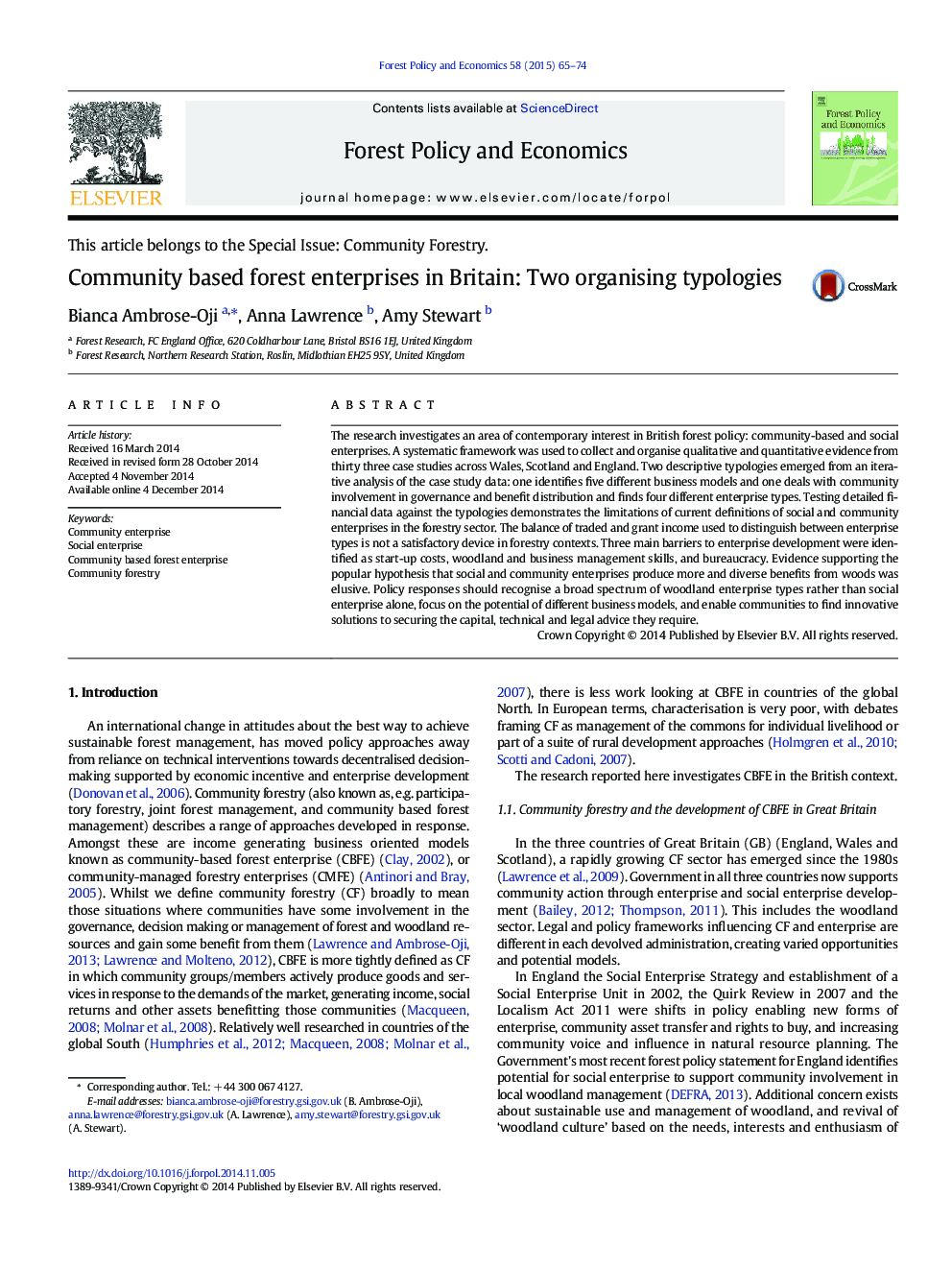| کد مقاله | کد نشریه | سال انتشار | مقاله انگلیسی | نسخه تمام متن |
|---|---|---|---|---|
| 91174 | 159754 | 2015 | 10 صفحه PDF | دانلود رایگان |
• A diversity of community based forest enterprises in Great Britain is investigated.
• Two typologies exploring business models and enterprise types are presented.
• Financial details of 33 case studies are tested against these typologies.
• A spectrum of socially driven and community oriented enterprises are identified.
• Communities still require technical and legal support developing their enterprises.
• Policy focus on the potential of different business models would be beneficial.
The research investigates an area of contemporary interest in British forest policy: community-based and social enterprises. A systematic framework was used to collect and organise qualitative and quantitative evidence from thirty three case studies across Wales, Scotland and England. Two descriptive typologies emerged from an iterative analysis of the case study data: one identifies five different business models and one deals with community involvement in governance and benefit distribution and finds four different enterprise types. Testing detailed financial data against the typologies demonstrates the limitations of current definitions of social and community enterprises in the forestry sector. The balance of traded and grant income used to distinguish between enterprise types is not a satisfactory device in forestry contexts. Three main barriers to enterprise development were identified as start-up costs, woodland and business management skills, and bureaucracy. Evidence supporting the popular hypothesis that social and community enterprises produce more and diverse benefits from woods was elusive. Policy responses should recognise a broad spectrum of woodland enterprise types rather than social enterprise alone, focus on the potential of different business models, and enable communities to find innovative solutions to securing the capital, technical and legal advice they require.
Journal: Forest Policy and Economics - Volume 58, September 2015, Pages 65–74
